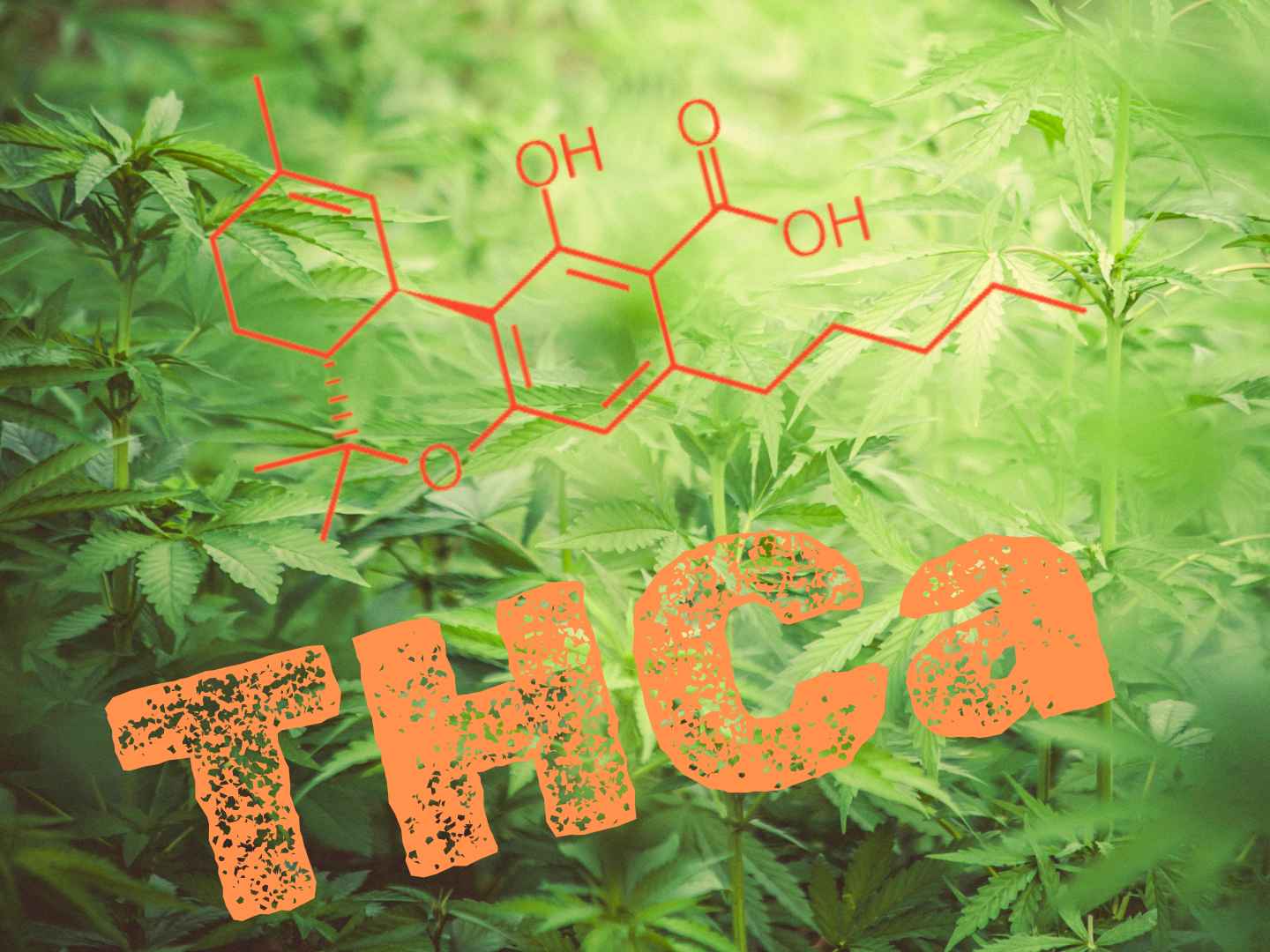What is THCa and Why is it Everywhere?

It’s high time we talk about a lesser-known but incredibly potent cannabinoid—THCa, or tetrahydrocannabinolic acid. While THCa is the non-psychoactive precursor to delta-9 THC, the compound responsible for the high you associate with cannabis, it has a lot more going on than you might think. This unassuming molecule sits quietly in raw cannabis, waiting for its moment. And when exposed to heat, it’s ready to transform and deliver some serious psychotropic effects.
From Discovery to Distinction
THCa was first identified back in the 1960s by Raphael Mechoulam, the Israeli chemist who famously discovered both THC and CBD. While THC quickly took center stage for its psychoactive properties, THCa was largely left in the background. But as cannabis research evolves, THCa is getting its own moment in the spotlight—particularly for what happens when you apply heat.
The Psychoactive Transformation of THCa
So, what makes THCa special? In its raw form, THCa doesn’t get you high. It’s non-psychoactive, mainly because it doesn’t bind well with CB1 receptors in the brain—the ones responsible for the euphoric and mind-altering effects of cannabis. But introduce a little heat—whether through smoking, vaping, or baking—and THCa undergoes a process called decarboxylation. It loses a carboxyl group, transforming into the psychoactive delta-9 THC. Suddenly, THCa becomes a powerhouse cannabinoid, delivering all the psychoactive effects that make cannabis so unique.
This transformation is where THCa really flexes. While THC levels in a product determine its potency, knowing the THCa content is equally crucial. A certificate of analysis (COA) from a reputable lab will often show a percentage of THCa alongside THC. As a rule of thumb, roughly 87.7% of the THCa content will convert to THC when heated. So, if your flower or concentrate has a high THCa percentage, expect a stronger psychoactive effect once you spark it up.
The 2018 Farm Bill: THCa's Legal Loophole
Here's where things get interesting from a legal perspective. The 2018 Farm Bill, which legalized hemp and its derivatives, carved out a space for THCa. Since THCa in its raw form isn't considered psychoactive, it technically falls under the legal definition of hemp if the product contains less than 0.3% delta-9 THC by dry weight. This loophole has allowed products high in THCa to remain legal as long as they haven't been decarboxylated.
This means THCa-rich products, like hemp flower or concentrates, can be sold legally across the United States—provided they stay below that critical 0.3% delta-9 THC threshold. However, as soon as heat is applied, those same products could become psychoactive and potentially illegal under federal law, depending on state regulations.
Comparing THCa to THC
If you’re curious about trying THCa, understanding how to read lab results is crucial. When you see a COA, the percentage of THCa can give you a good idea of the potential psychoactive power once it’s heated. As mentioned, roughly 87.7% of the THCa will convert to THC. So, if a flower strain shows 20% THCa, expect around 17.5% THC after decarboxylation. In simpler terms, high THCa equals high THC when activated by heat.
THCa's Unique Benefits
But THCa isn’t just about getting high. In its raw form, it offers a range of potential health benefits without the intoxicating effects. Research suggests that THCa might have anti-inflammatory, neuroprotective, and anti-emetic properties, which could be valuable for people managing conditions like arthritis, neurodegenerative diseases, or nausea—all without the high that comes from delta-9 THC.
Interestingly, THCa also interacts with receptors outside the endocannabinoid system, such as TRP channels involved in pain perception, inflammation, and body temperature regulation. So, while THC primarily targets the CB1 and CB2 receptors, THCa may have a broader scope of influence throughout the body.
Raw Cannabis, Smoothies, and More
For those looking to harness the potential benefits of THCa without the psychoactive effects, raw cannabis products are your go-to. Think juicing raw leaves, adding fresh flowers to smoothies, or using cold-extracted oils. This method of consumption preserves THCa in its non-intoxicating form, allowing you to explore its therapeutic properties.
However, if you're aiming for the full psychoactive experience, you can choose high-THCa flower or concentrates and apply heat. Just remember that the decarboxylation process is key to unlocking its mind-altering potential.
As we learn more about THCa, its versatility becomes clear. Whether you’re interested in the raw, non-intoxicating benefits or curious about its potential as a potent, psychoactive compound, THCa is carving out its own niche in the cannabis world. The 2018 Farm Bill has allowed THCa to remain legal in many forms, but knowing how it converts to THC when heated is crucial for navigating both its effects and its legality. So, whether you’re a wellness seeker or a cannabis connoisseur, THCa is worth a closer look—it just might be the key to a more nuanced cannabis experience.
Please note: You are not currently logged in. Only members can contribute comments. If you would like to contribute click the button below.

JUN
Wednesday
4
A Dispensary EventDragonfly Wellness |
Dragonfly Wellness
Community Clean Up
We're an organization that is dedicated to the idea of empowering our community.
Every Thursday morning we partner with our neighbors at the Geraldine E. King Women's Resource Center to clean up our neighborhood together! We encourage all patients, pharmacies and community members alike to join us!
We understand it's not always possible to donate financially. So we have created a Covid-safe activity to benefit our entire community by cleaning it up, connecting and getting out doors all while simply donating our time together.
Masks are required. Social distancing is enforced. Supplies such as gloves, trash pickers, bags and sharp buckets will be provided for all volunteers at the south side of our building
We cannot thank you enough for your generous donation of your valuable time.
|
||||||

JUL
Monday
21
A Physician EventBryan Doner, DO |
Compassionate Caregivers and Compassionate Certification Centers
PA Medical Marijuana Educational Forum – Cranberry Public Library
Diana Briggs, Founder of PA Compassionate Caregivers and Dr. Bryan Doner, CEO of Compassionate Certification Centers, will give an overview of our PA Medical Marijuana Program. In addition, we will complete the evening with a panel of experts from the MMJ Industry to answer all of your questions.
|
